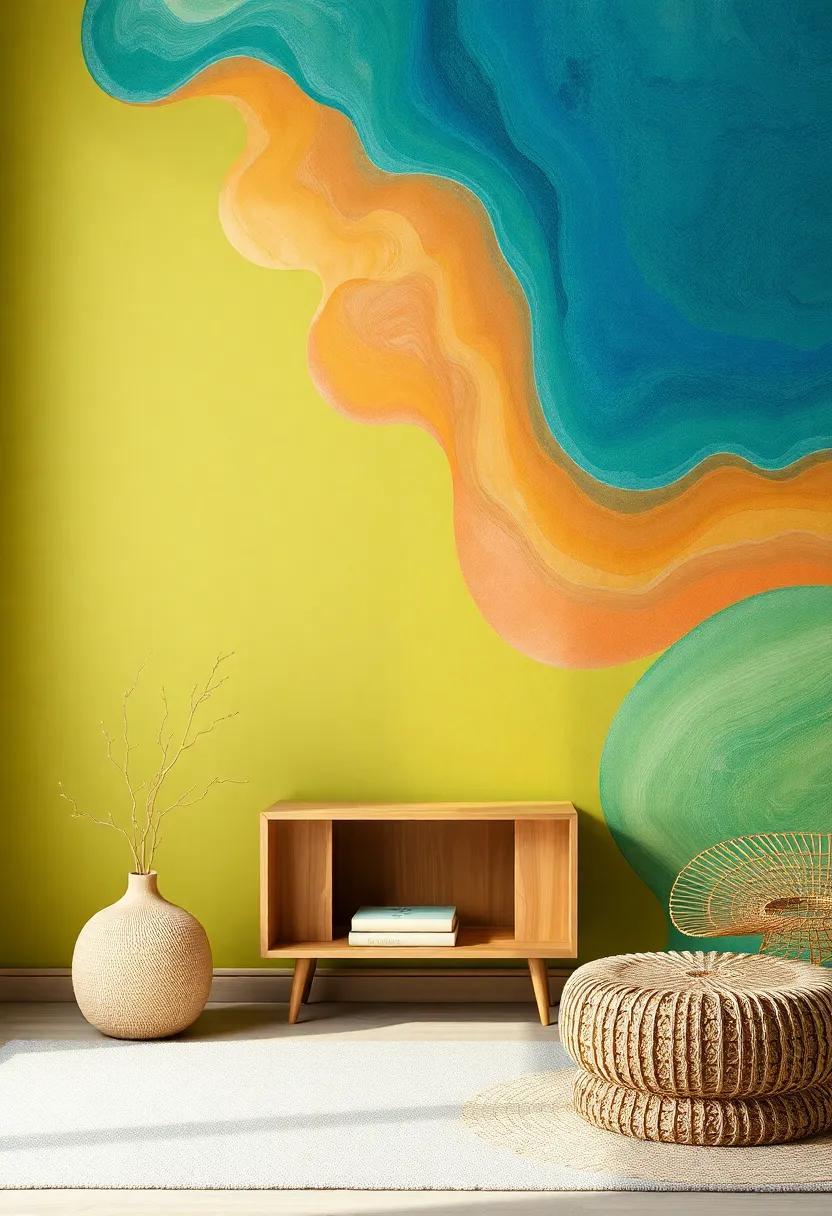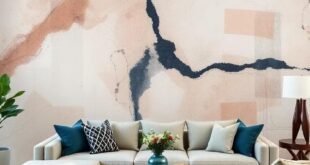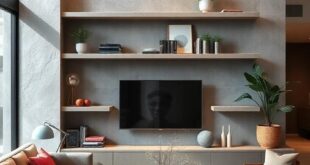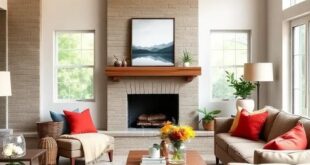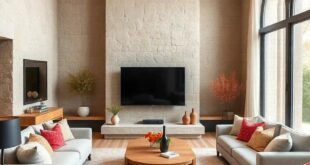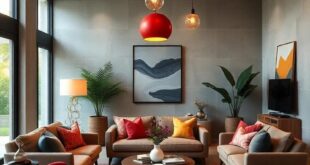In an age where urbanization often overshadows the serenity of the natural world, the living room stands as a canvas for harmonizing our indoor spaces with the richness of the outdoors.“” invites you to embark on a journey where architecture meets ecology, suggesting that the walls we inhabit can echo the beauty of nature just beyond our doorstep. From the warm, earthy hues of clay and wood to the soothing patterns of stone and plant-inspired designs, this article will explore how thoughtful selections of materials and colors can transform living spaces into sanctuaries that breathe life and tranquility. join us as we delve into the art of blending the essence of nature with modern design, creating environments that not only elevate our aesthetic experience but also promote well-being and connection to the natural world.
Embracing Earthy Tones to Create a Tranquil living Room Atmosphere
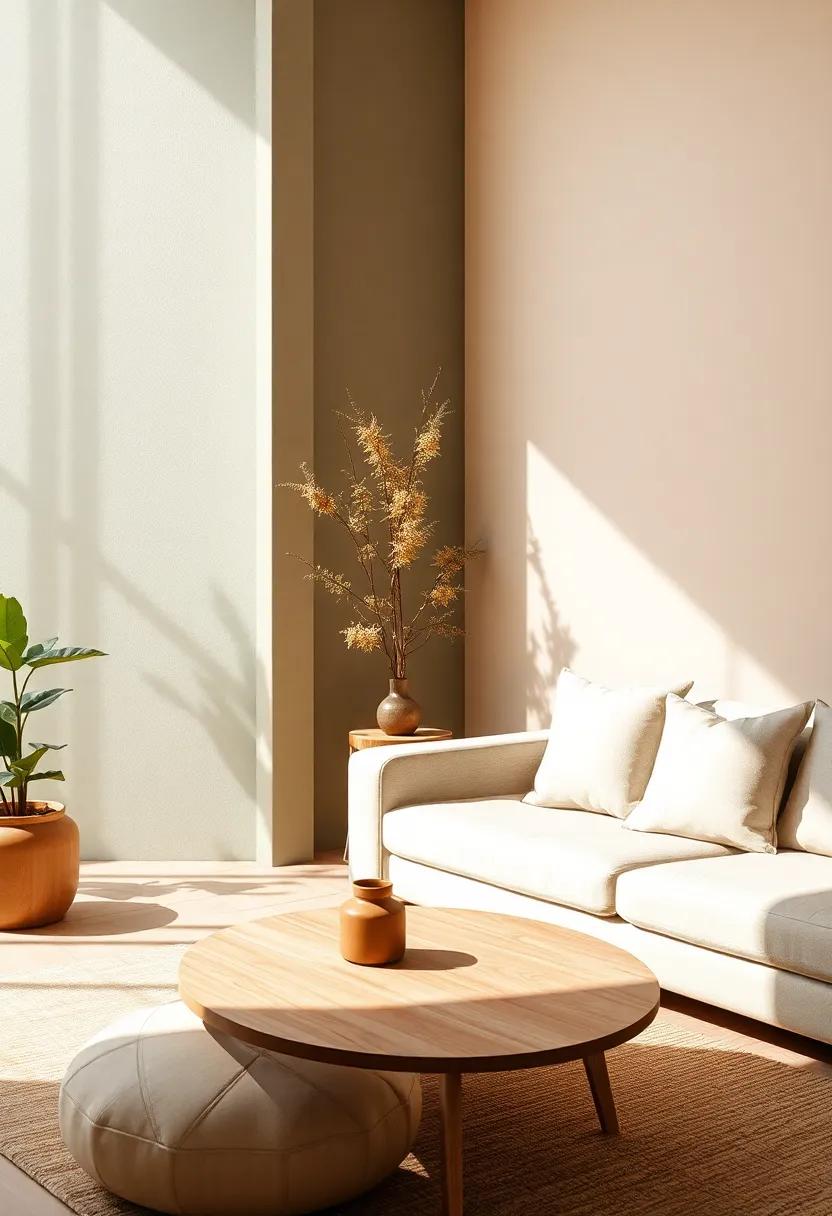
By weaving earthy tones into your living room, you can encapsulate the essence of nature, creating a sanctuary that exudes serenity and comfort. Shades such as soft browns, muted greens, and warm taupes can mimic the calming presence of the great outdoors. Consider incorporating these hues through various elements:
- Painted Walls: Choose a gentle sage green or a sandy beige to evoke the feeling of being outside.
- Textiles: Use cushions and throws in natural fibers like linen and cotton, adorned with earthy colors.
- Artwork: Select pieces that feature landscapes or abstract representations of nature.
Balancing these tones with natural materials enhances the organic vibe of the space. Wooden accents, whether through furniture or decorative pieces, add warmth while contributing to the texture of the room. To further cultivate a tranquil atmosphere, incorporate plants that thrive indoors.Below is a simple table illustrating the best plants for natural ambiance:
| Plant | Benefits |
|---|---|
| Snake Plant | Air purification, easy maintainance |
| Peace Lily | Improves humidity, beautiful blooms |
| Pothos | Versatile growth, drought-resistant |
incorporating Natural Textures for a Warm and inviting space
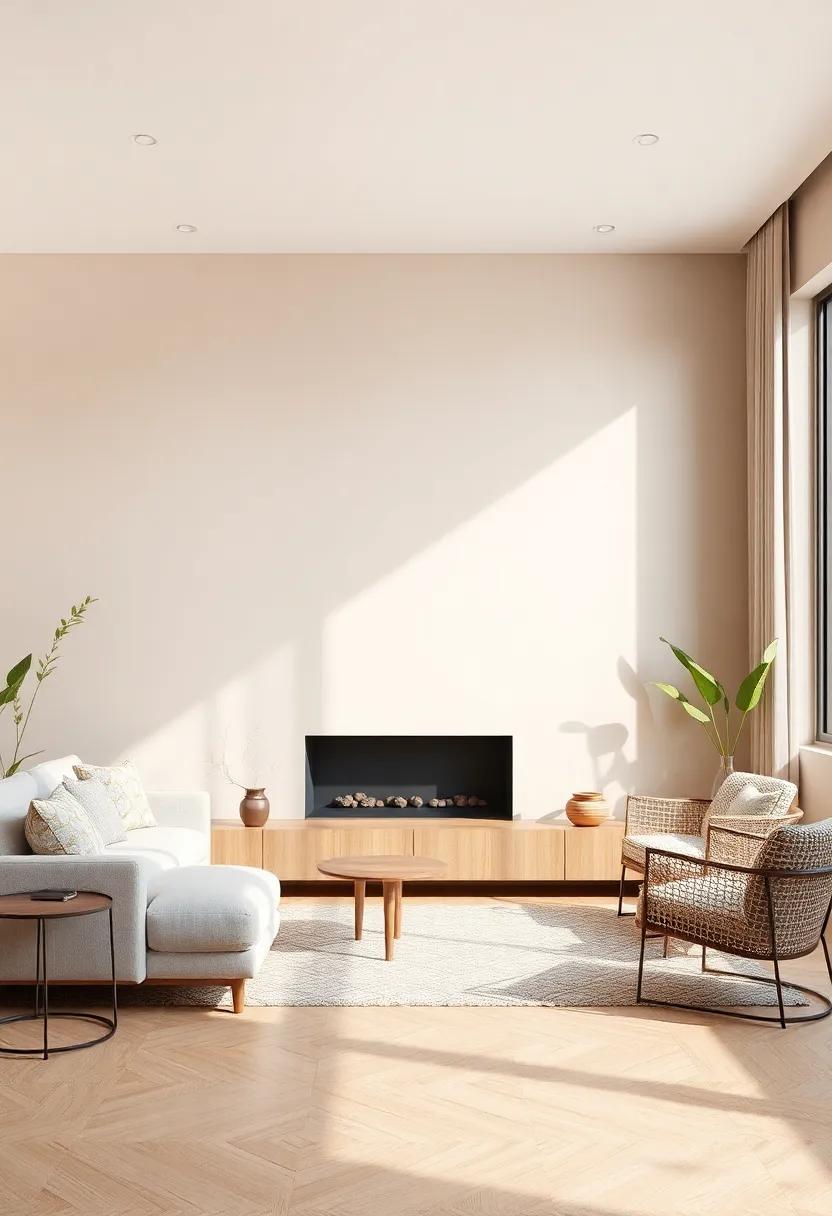
Bringing the beauty of nature indoors can be a transformative approach to designing your living room. Incorporating natural textures such as wood, stone, and textiles can create an inviting atmosphere that fosters warmth and comfort. Consider adding elements like a reclaimed wood accent wall, which not only adds depth but also provides a tactile experience. Similarly, using stone tiles or a veneer can evoke a rugged, earthy charm that speaks to the outdoors, especially when paired with soothing, nature-inspired hues like soft greens or earth tones.
To enhance the natural theme, adding a variety of textiles can introduce layers of comfort and visual interest. Fabrics like linen, cotton, and wool can complement your wall choices and soften the overall appearance.Consider implementing items such as:
- Woven wall hangings for added texture
- Throw pillows in organic patterns and materials
- rug with natural fibers to anchor the space
Additionally, integrating a combination of natural finishes in your furniture selection, such as a stone coffee table or rattan chairs, can further enrich the organic feel. Here’s a simple table that summarizes ideal materials and their effects:
| Material | Texture effect |
|---|---|
| Wood | Warmth and character |
| Stone | Grounded and robust |
| Linen | Soft and inviting |
| Leather | Luxurious and durable |
Exploring the Beauty of wooden Accents in Modern Interior Design
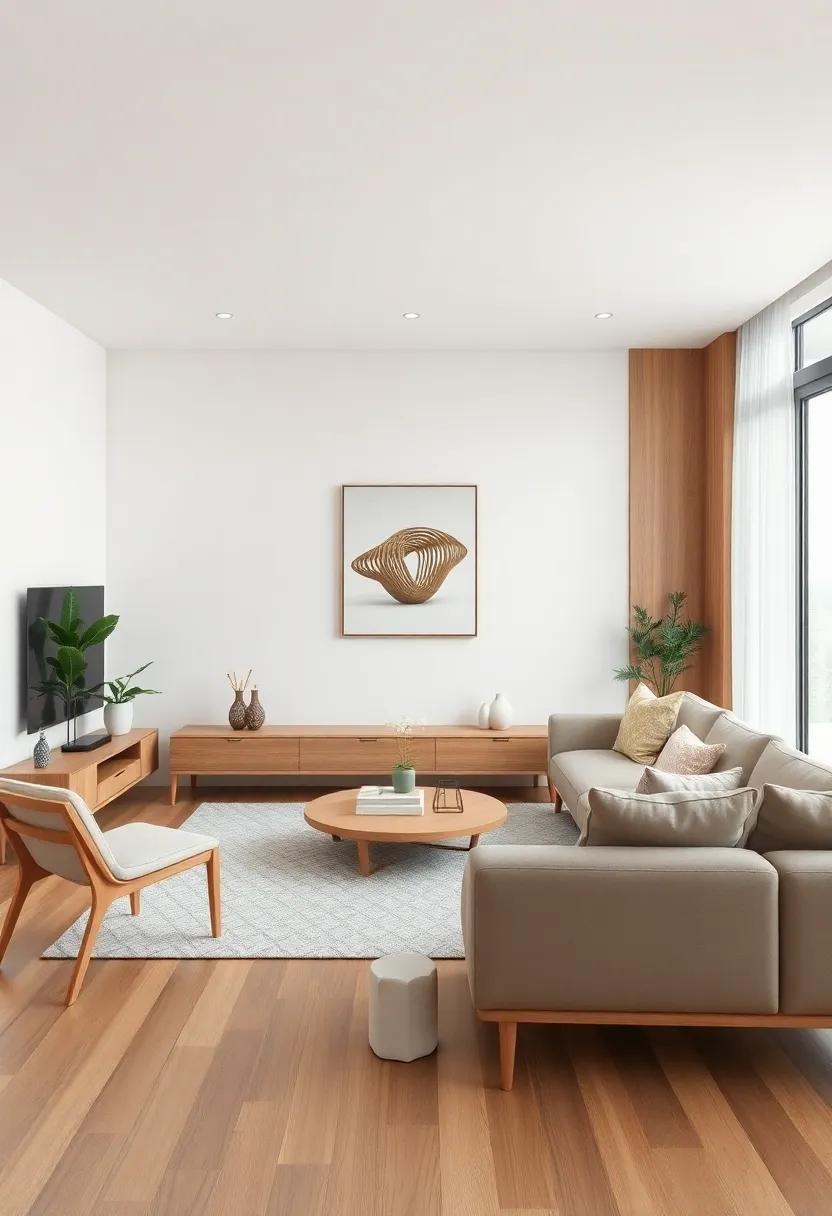
Wooden accents serve as a bridge between the natural world and modern interior design, providing warmth and texture that can transform a simple living space into a sophisticated sanctuary. Natural wood finishes not only enhance the visual appeal but also offer tactile comfort, inviting you to touch and interact with your surroundings. Incorporating elements such as reclaimed wood paneling, wooden shelving, and custom furniture can create a harmonious balance that highlights the beauty of nature while maintaining a contemporary aesthetic. The choice of wood finishes—whether light,dark,or reclaimed—can substantially impact the mood of the room,making it essential to select tones that complement the overall color palette.
Furthermore, the versatility of wood allows it to be easily integrated with other materials and styles. To achieve a cohesive look, consider these tips for using wooden accents effectively:
- Mix textures: Combine smooth, polished wood with rough-hewn pieces for visual interest.
- accent walls: Use wood paneling or slats to create a stunning focal point.
- Layer colors: Pair earthy wood tones with soft textiles and vibrant decor to create depth.
The interplay between wood and other materials like metal, glass, and stone can yield designs that feel both natural and modern, capturing the essence of the outdoors within the four walls of your home.
visualizing Serene Greenery: Plants as Living Wall Art
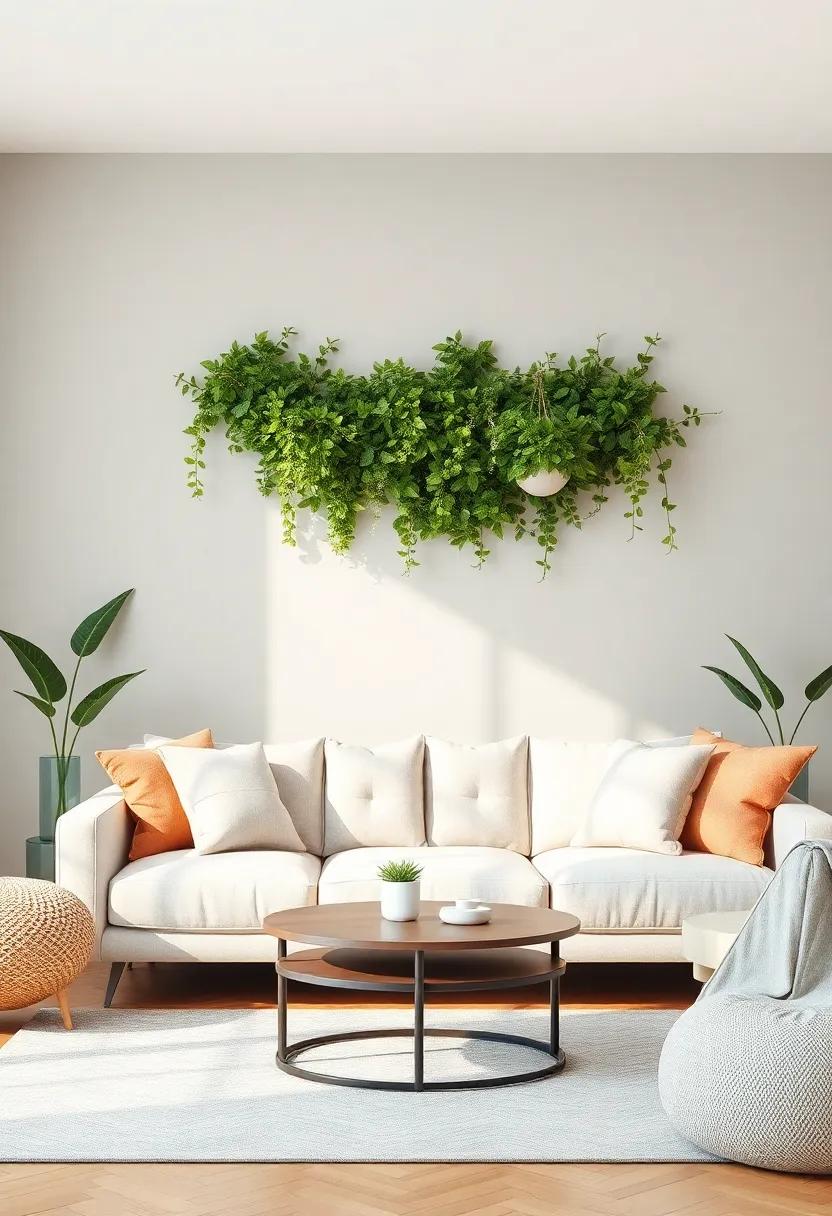
Integrating plants into your living room can transform dull walls into vibrant canvases of life. Picture large, leafy plants cascading from hanging planters, or a collection of smaller succulents arranged atop a decorative ledge. Each variety brings its own unique personality and texture, enhancing the backdrop of your home. With options like philodendrons exuding elegance, ferns adding softness, or Cacti introducing a touch of whimsy, the possibilities for arranging these living pieces of art are boundless.A carefully curated selection of greenery can bring harmony and depth, inviting a sense of serenity right into the heart of your home.
For a creative touch, consider creating a living wall with a variety of plants that not only beautifies your interior but also improves air quality. A vertical garden can serve as a stunning focal point, employing materials such as wooden pallets or metal grids to frame your botanical artwork. Here are some looked-for characteristics when designing your green wall:
- texture: Choose plants with varying leaf shapes and sizes.
- Color Palette: Combine different shades of green along with pops of floral color.
- Planter Styles: use unique pots to enhance visual interest.
Crafting Balance Through Stone Elements and Sustainable Decor
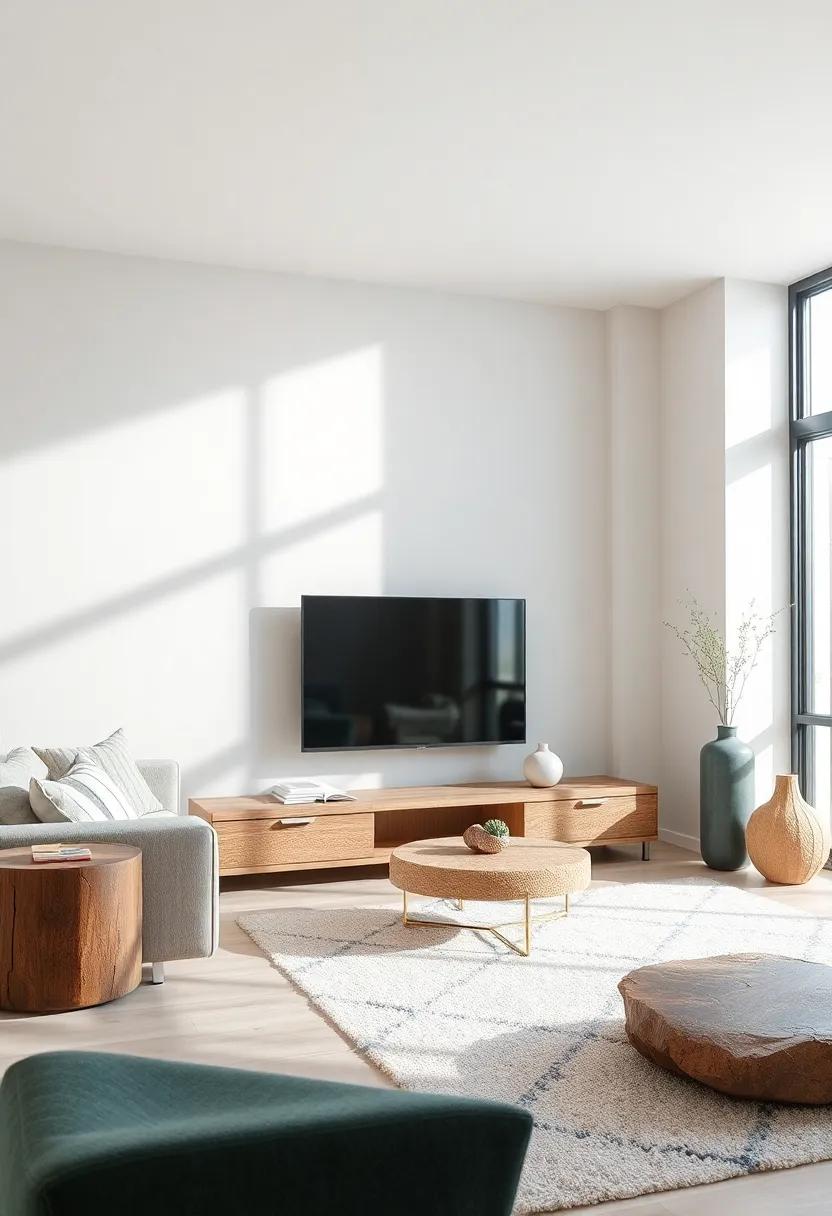
Incorporating stone elements into your living room not only brings a rugged elegance but also fosters a deep connection with the earth. Natural stone, whether used in wall cladding or decorative accents, introduces a variety of textures and colors that can immediately transform a space. When paired with sustainable decor, such as reclaimed wood furniture or ethically sourced textiles, the result is a harmonious blend that celebrates both style and environmental responsibility. Consider integrating textures and forms like the following:
- Textured Stone Walls: Installing an accent wall with rough-hewn or polished stone creates a stunning focal point.
- Natural Stone Accessories: Use stone sculptures, coasters, or candle holders to subtly bring the outdoors in.
- Indoor Landscaping: Combine stones and plants for a mini rock garden that acts as a living art piece.
Achieving a balanced aesthetic goes beyond merely selecting materials; it engages the senses and creates a soothing atmosphere. To enhance this natural vibe, use a color palette inspired by the earth—think soft greens, warm browns, and cool grays. Consider these essential decor strategies to complement your stone features:
| Element | Color Palette |
|---|---|
| Natural Stone | Soft Grays,Earthy Browns |
| Wood Furniture | Warm Tones,Rich Hues |
| Textiles | Neutral Shades,Natural Fibers |
Mixing these elements not only creates a stunning visual appeal but also promotes a sense of tranquility and groundedness within your living space. By thoughtfully selecting and layering these materials, you’ll cultivate an habitat that is a true reflection of nature’s beauty.
Capturing the Essence of Nature with Neutral Color Palettes
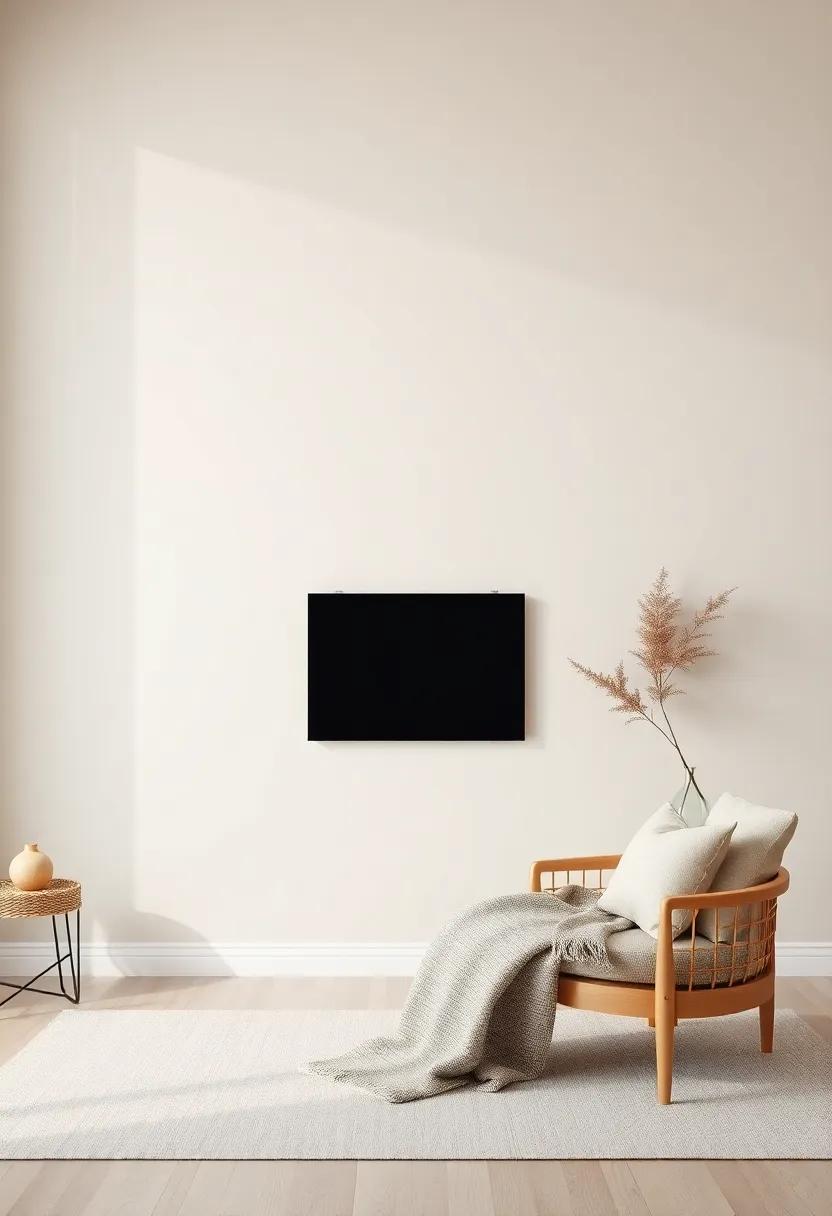
The beauty of nature often lies in its subtle colors and textures, which can be artfully reflected in your living room through well-chosen neutral palettes. These tones encapsulate the serene essence of natural landscapes, bringing tranquility indoors. Consider incorporating shades like soft beiges, warm greys, and muted whites, which echo the calming elements of sand, stone, and clouds. If you want to make your space feel more dynamic, layering these colors with various natural materials such as wood and stone can create a stunning visual contrast while maintaining harmony. textures play a pivotal role here:
- Rustic wood finishes to evoke forest warmth.
- Smooth stone accents to introduce an element of the outdoors.
- Soft fabrics reminiscent of wildlife, like organic cotton or linen.
Using a neutral color scheme opens up possibilities for accent features that tell a story and draw the eye. For instance, accent walls painted in a deeper earth tone can serve as a grounding element while showcasing artworks or decor pieces inspired by nature. To further enhance this connection, consider a simple table displaying natural materials found in your environment, paired with details on how they enhance your overall aesthetic.
| Material | Color | Effect |
|---|---|---|
| wood | Walnut Brown | Brings warmth and texture |
| Stone | Slate Gray | Adds sophistication and strength |
| Cotton | Ivory | Promotes softness and comfort |
Using Recycled Materials for Eco-Friendly Living Room Designs
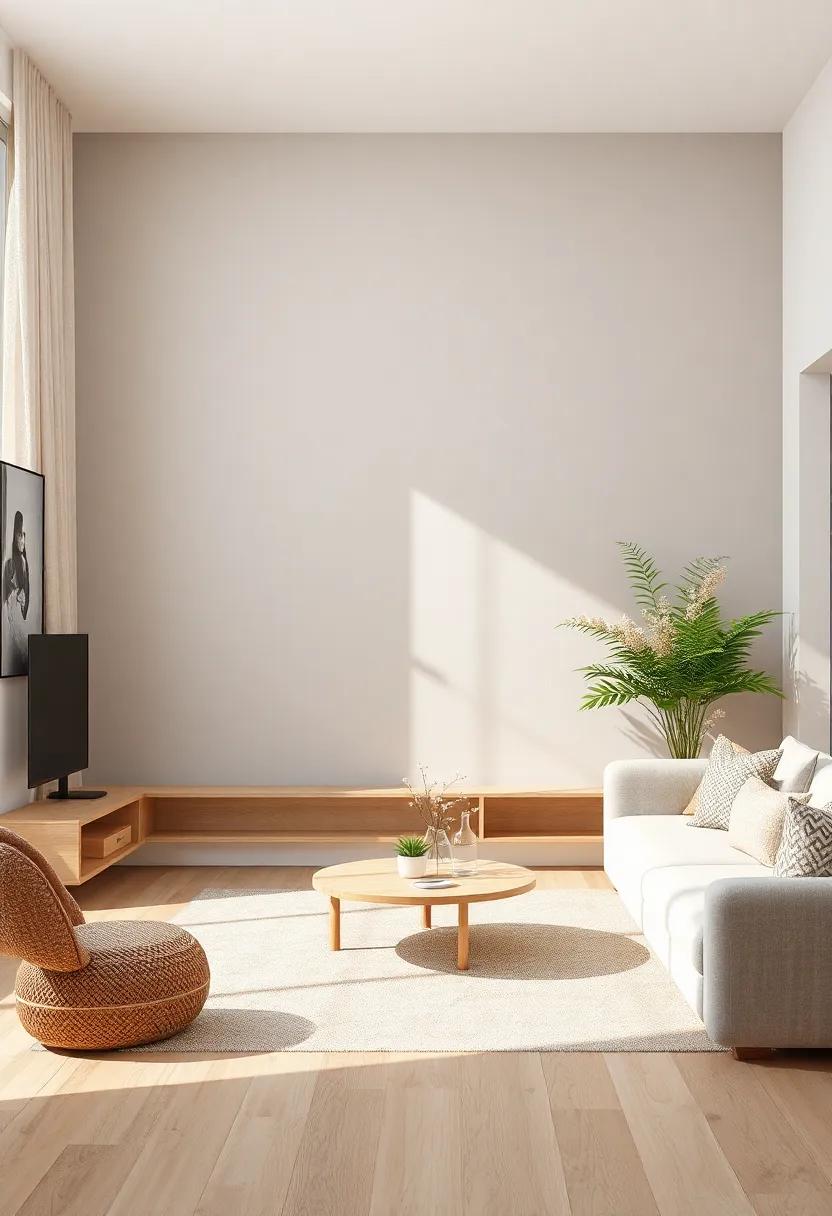
incorporating recycled materials into living room designs not only promotes sustainability but also adds a unique character to your space. You can use reclaimed wood for furniture, such as coffee tables and shelves, which embrace a rustic charm while reducing deforestation. Consider textiles made from upcycled fabrics or natural fibers like jute and cotton,which offer both comfort and a connection to the earth. Additionally, decorative elements crafted from recycled glass or metal can introduce texture and visual interest, transforming your living area into an eco-friendly oasis.
To maximize the impact of recycled materials, you can create an inspiring color palette that complements your natural theme. Earth tones, such as greens, browns, and soft neutrals, can harmonize beautifully with the textures of recycled items. Here’s a simple table to illustrate some complementary materials and colors:
| Material | Color Palette |
|---|---|
| Reclaimed Wood | Warm Browns, Deep Greens |
| Upcycled Fabrics | Soft Neutrals, Earthy Tones |
| Recycled Glass | Cool Blues, Greens |
| Recycled Metal | Rustic Grays, Silver |
By thoughtfully choosing recycled materials and coordinating them with a nature-inspired color scheme, your living room can become a sanctuary that reflects both your commitment to the planet and your personal style. The result is not just a beautiful space, but one that resonates with purpose and creativity.
highlighting Rustic Charm with Handmade Artisanal Pieces
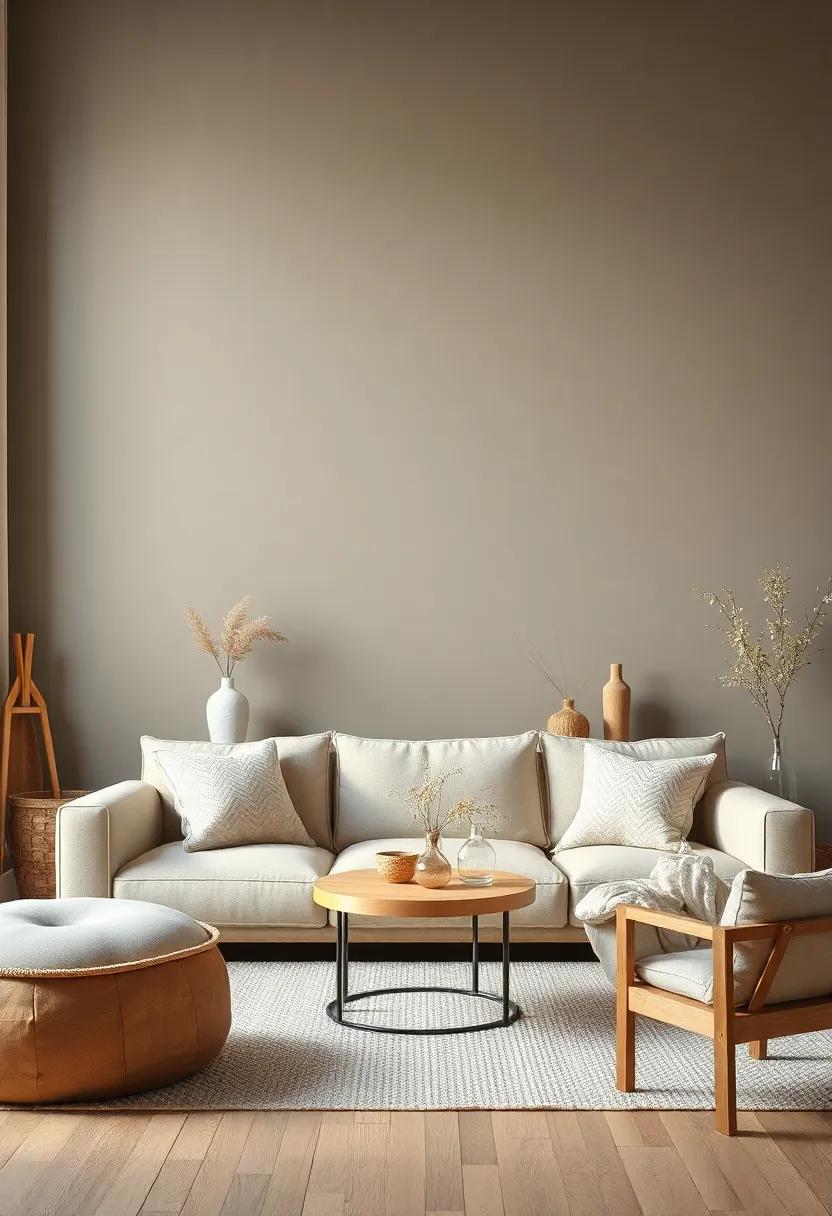
Incorporating handmade artisanal pieces into your living room can enhance its rustic charm, creating a tactile connection to nature. Consider integrating locally crafted decor like wooden wall hangings or handwoven tapestry to encapsulate the warmth of organic materials.These items tell a story through their textures and craftsmanship, inviting a sense of authenticity into your space. By carefully selecting pieces that reflect natural elements, you cultivate an atmosphere that’s both homey and sophisticated.
Display a curated collection of objects such as ceramic vases, hand-painted tiles, and woven baskets.These items not only serve practical functions but also add visual interest to your walls. Here’s a simple suggestion on how to arrange these pieces to maximize their impact:
| Piece Type | Suggested position |
| Wooden Wall Art | Above the Sofa |
| Ceramic Vases | on Floating Shelves |
| Handwoven Tapestry | Behind Coffee Table |
| Painted Tiles | As a Kitchen Backsplash |
| Woven Baskets | On Wall Hooks |
These arrangements not only celebrate the art of handcrafted items but also evoke a serene connection to the natural world,transforming your living room into a sanctuary enriched with rustic elegance.
Creating Focal Points with Nature-Inspired Wall Art
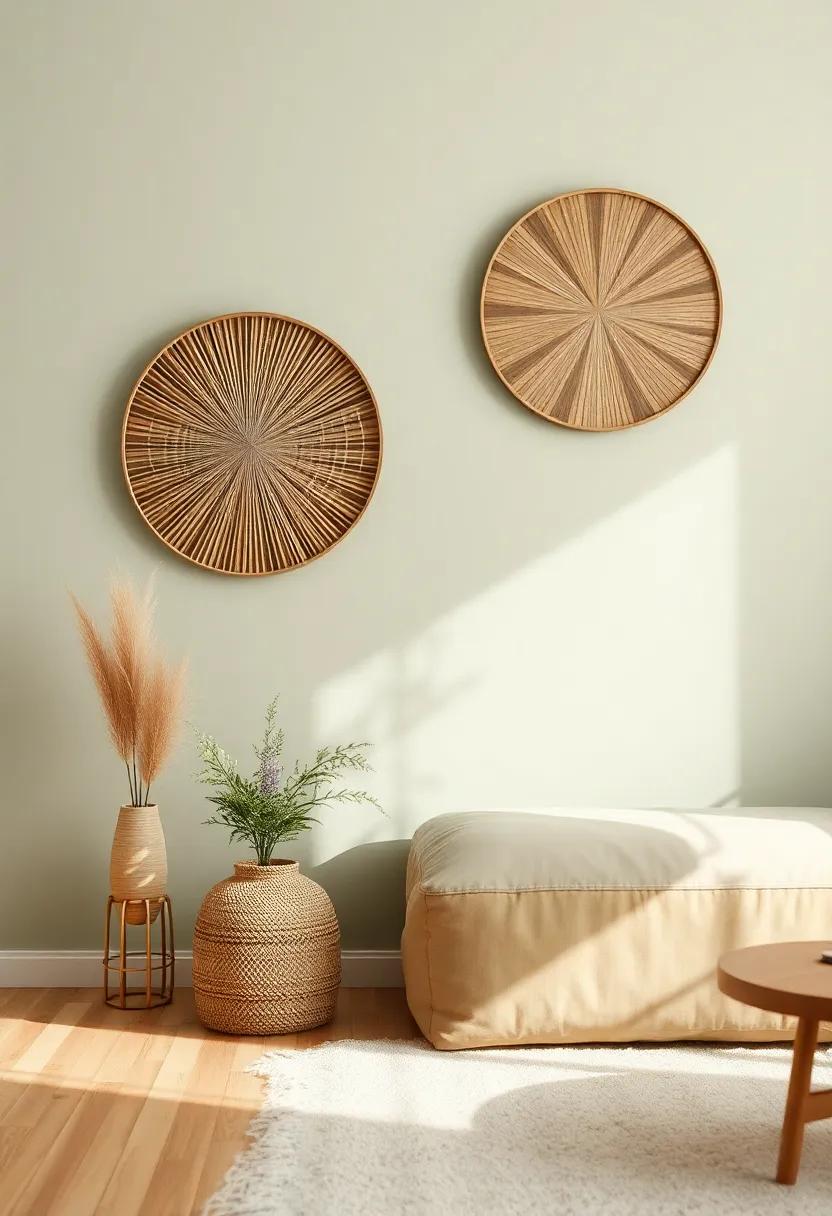
Transforming your living room into a serene sanctuary can be beautifully achieved through the strategic use of nature-inspired wall art.By selecting pieces that echo the natural world, you can create stunning focal points that draw the eye and invite calm. Consider art featuring elements such as landscapes, flora, and fauna that mirror the colors and textures found outdoors. The harmonious blending of these visuals with soft,earthy tones on your walls can invoke a refreshing and tranquil atmosphere,making your space feel more connected to nature.
To enhance the impact of your artwork, think about layering different sizes of pieces to add depth and interest. This can be achieved by pairing large format prints with smaller framed pieces, creating a dynamic collage that enlivens the wall. Additionally, incorporating different materials such as wood, metal, or fabric can add tactile richness that complements the visual experience. Here are some types of nature-inspired art to consider:
- Botanical Illustrations
- Landscape photography
- Abstract Nature Shapes
- Textured Wall Hangings
- Glass or Resin Nature Scenes
The arrangement of these pieces can be just as critically important as the art itself. An ideal layout should flow naturally, leading the eye through the entire display while creating visual balance. You might find it helpful to sketch a simple layout or use a digital tool to visualize different arrangements before committing. Here’s a concise overview of layout styles to explore:
| Layout style | Description |
|---|---|
| Grid | Crisp lines aligning art pieces in an organized format. |
| Salon Style | A varied, eclectic mix that creates a dynamic visual experience. |
| Symmetrical | equal balance on either side for a classic look. |
| Asymmetrical | diverse arrangement with intentional imbalance for modern flair. |
Infusing Light with Organic Fabrics and Earthy patterns
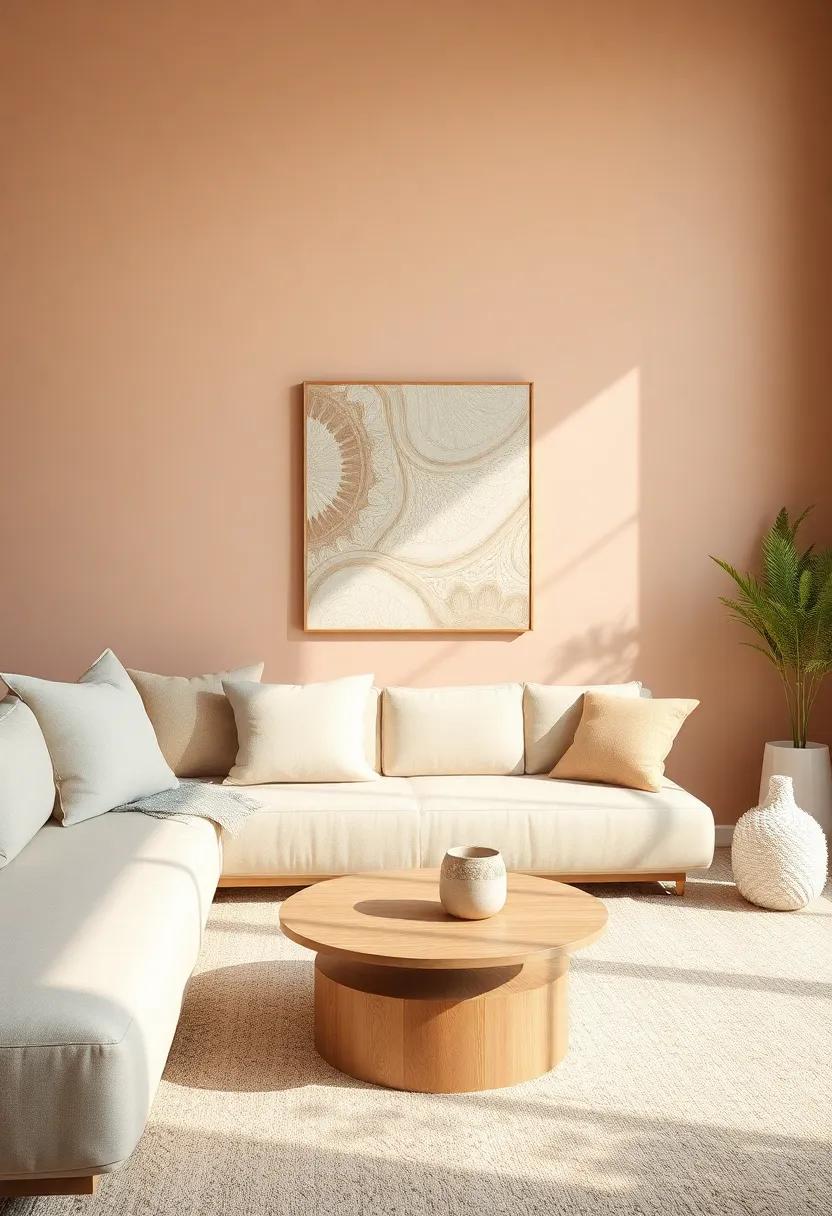
Incorporating organic fabrics into your living room is a delightful way to bring warmth and comfort to your space. Materials such as linen, cotton, and wool not only add texture but also invite a sense of natural serenity. Choose upholstery and curtains that boast earthy tones—from deep greens and warm browns to muted beiges—to create an atmosphere that feels connected to the outside world. The interplay of light and shadow on these fabrics enhances the room’s ambiance, allowing the beauty of nature’s colors to shine through.
When paired with earthy patterns, organic fabrics can transform your living room into an aesthetically pleasing retreat. Opt for designs inspired by nature,such as geometric shapes,botanical prints,and abstract motifs. These patterns echo the natural world, providing a visual connection to earthy landscapes. Consider showcasing these elements through:
- Cushions in varying patterns
- Wall art featuring organic shapes
- Throw blankets with textured weaves
To further harmonize the space, utilize a carefully curated color palette, as illustrated in the table below:
| Color | Emotion/effect |
|---|---|
| Forest Green | Calming and Restorative |
| Rust Brown | Warmth and Comfort |
| Soft Beige | Neutral and Inviting |
Bringing the Outside In: Large Windows and natural Light
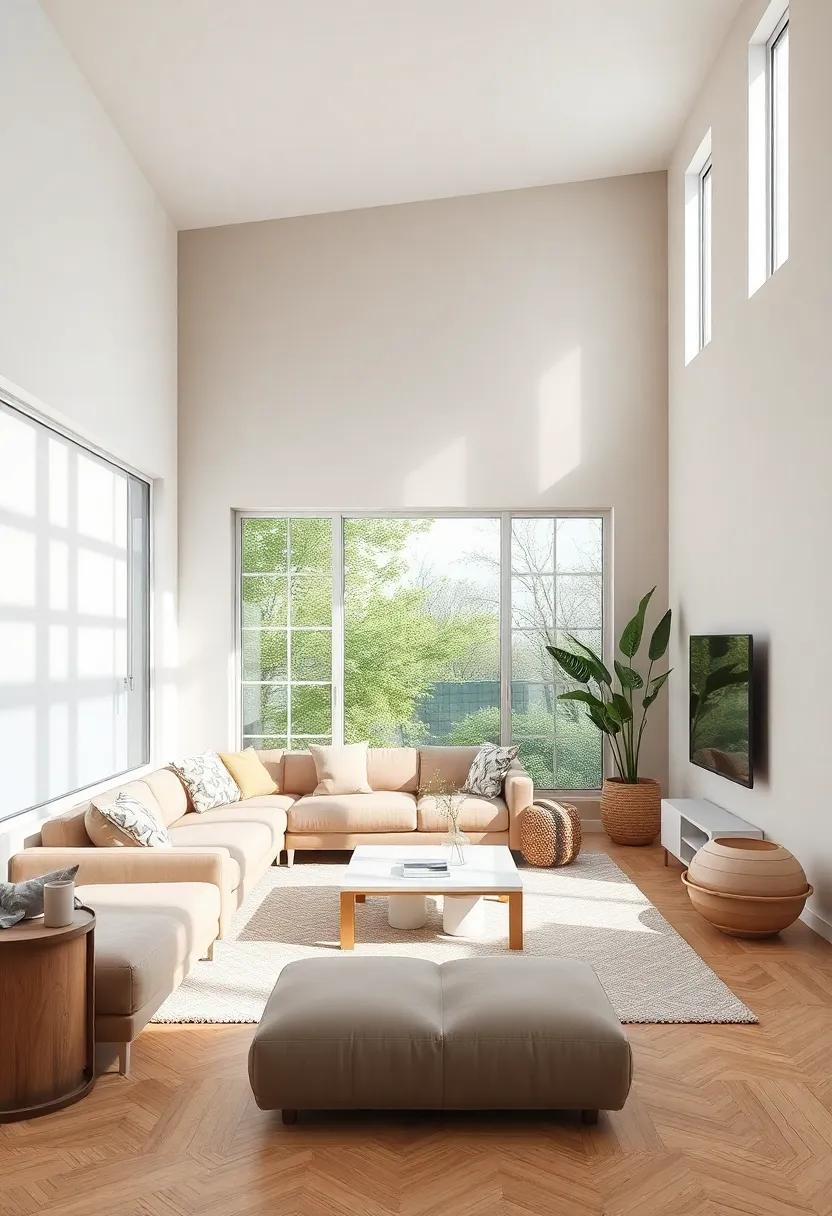
nothing brings the spirit of the outdoors into your home quite like large windows. These architectural features not only maximize the flow of natural light but also create an ever-changing tapestry of colors and shadows throughout the day. By choosing oversized window designs or wall-sized glass panels, you can seamlessly blur the line between your living space and the landscape beyond. Imagine sipping your morning coffee while basking in the warm sunlight, surrounded by the vibrant hues of nature – it’s a daily reminder of the natural beauty that exists just outside your walls.
To further enhance the effect of your large windows, consider integrating elements that complement the natural light. Soft, earthy tones in your wall colors can reflect sunlight beautifully, while natural materials such as wood, stone, or bamboo can be introduced through furniture or decorative pieces. Additionally, incorporating plants can amplify the connection to nature, as their greenery interacts playfully with the sunlight streaming in. Here’s a simple guide to choosing the right plants for your space:
| Plant Type | Light Preference | Care Level |
|---|---|---|
| Snake Plant | Low to Bright Light | Low Maintenance |
| Fiddle Leaf Fig | Bright Indirect Light | Moderate Care |
| Pothos | Low to Bright Light | Easy Care |
Establishing Flow with Natural Shapes and Curves in Furniture
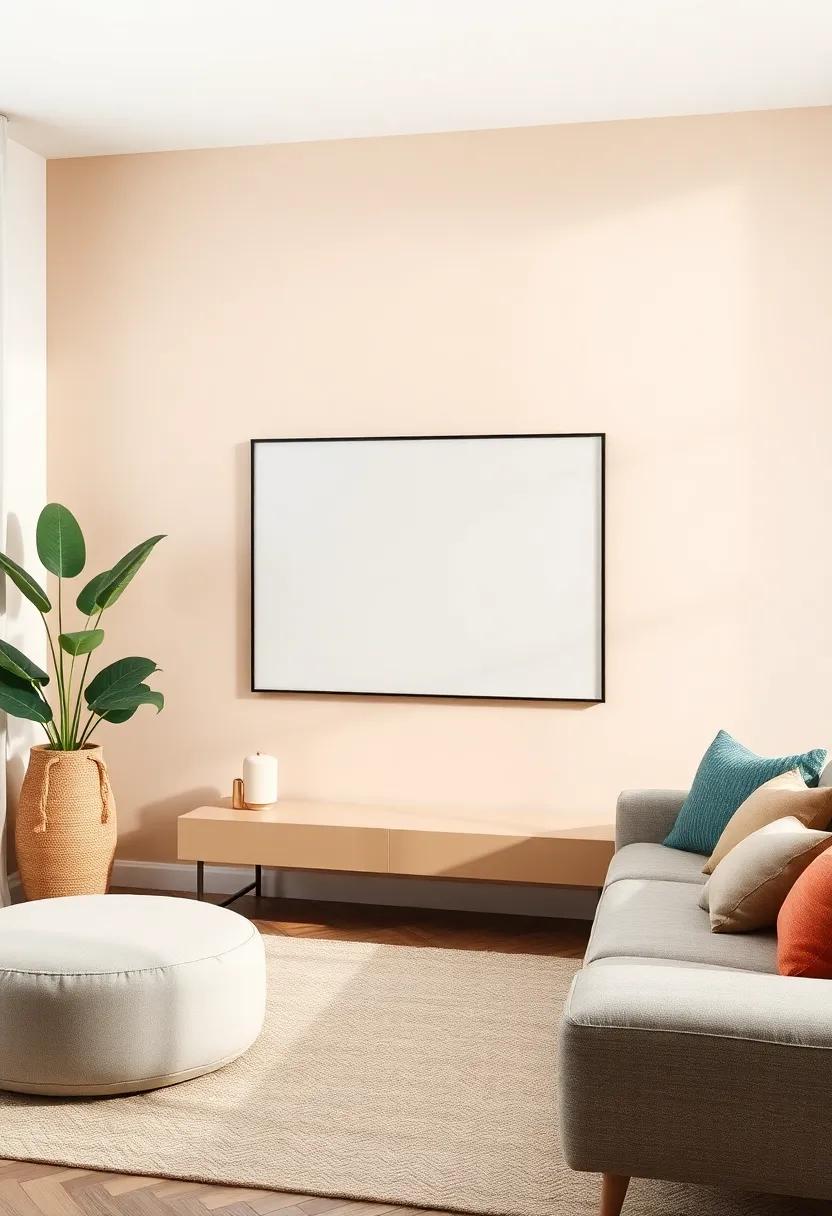
Incorporating organic forms into furniture design can seamlessly introduce a sense of tranquility and harmony to your living space. By selecting pieces that boast smooth curves and soft edges, you can create an inviting atmosphere that mirrors the gentle lines of nature.For instance, consider a sofa with rounded arms and a sinuous silhouette that encourages relaxation and conversation. Pair it with coffee tables featuring asymmetrical shapes or live-edge wood designs, which highlight the beauty of raw materials and create a visual dialog within the room.
Additionally, using furniture that embraces natural textures can further enhance this flowing aesthetic. Look for upholstered pieces in earthy tones, such as muted greens, soft browns, and warm creams, designed to evoke the essence of the outdoors. Complement these elements with decor items such as:
- Bamboo or rattan accents for a tropical touch
- stone or marble surfaces to add a raw, grounded feel
- Curvy lighting fixtures that mimic organic forms
Through the thoughtful integration of soft shapes and natural materials, your living room can transform into a serene sanctuary that celebrates the beauty of nature in every detail.
Using Color Psychology: How Earthy Hues Influence Mood
The choice of earthy hues in your living room can significantly influence the atmosphere and emotional response of the space. These colors, reminiscent of the natural world, evoke feelings of calmness and stability. Rich browns, muted greens, and soft terracottas can create a serene backdrop that fosters relaxation. By incorporating such shades into your decor, you can transform your living room into a peaceful retreat. Consider using a combination of these colors through various design elements:
- accent Walls: A deep moss green or warm beige can serve as an inviting focal point.
- Textiles: Cushions, curtains, and throws in earthy tones enhance the connection to nature.
- Artwork: Natural landscapes or abstract pieces featuring earthy colors can add depth.
Moreover, these colors connect to our primal instincts, promoting a sense of grounding and security. Studies have shown that spaces incorporating warm, earthy tones can reduce stress and elevate overall well-being. When combined with natural materials like wood and stone, the benefits amplify, creating a harmonious balance that resonates with our innate desire for nature. Consider these simple pairings to optimize the mood:
| Color | Emotion |
|---|---|
| Earthy Brown | Warmth and Stability |
| Moss Green | Calmness and Balance |
| Terracotta | comfort and Comfort |
Celebrating Local craftsmanship through Unique Wall Features
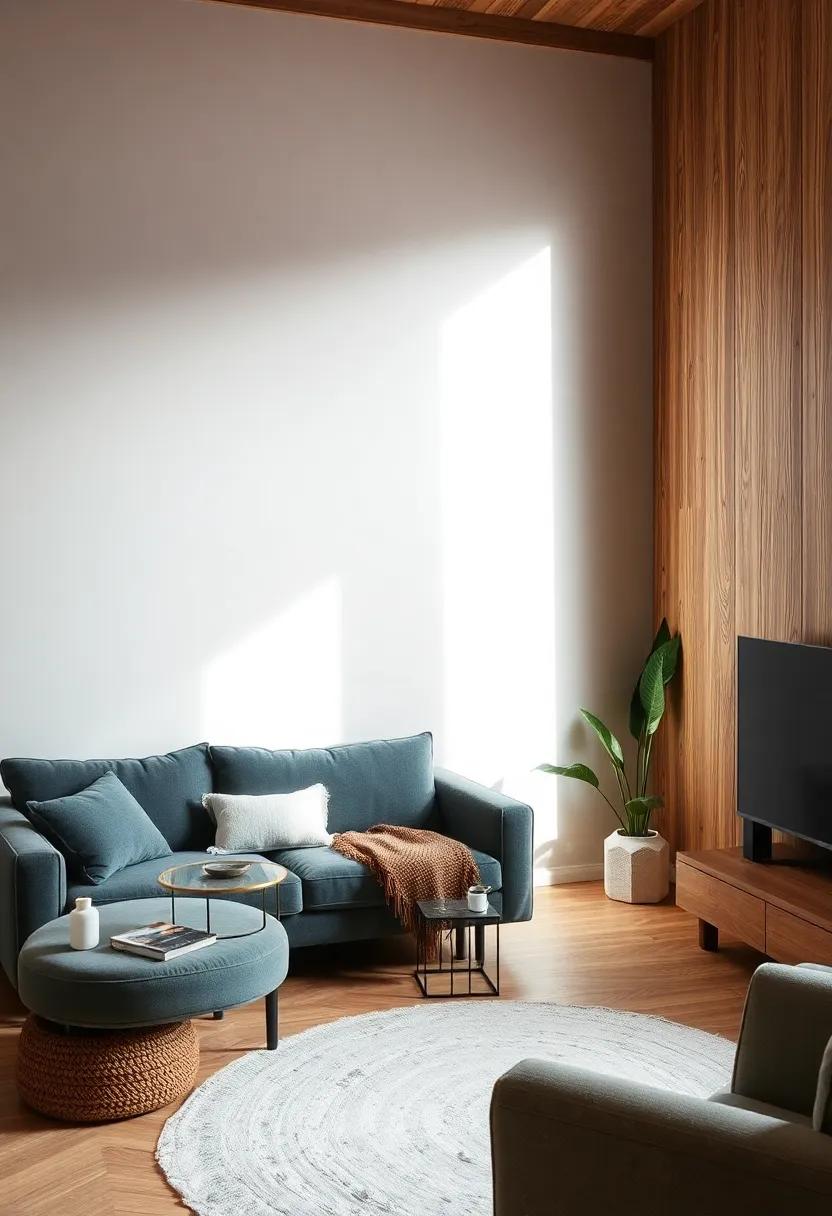
Integrating local craftsmanship into your living space not only elevates the aesthetic but also promotes a sense of community and connection to the surrounding environment. Unique wall features crafted by skilled artisans serve as conversation starters, inviting admiration and curiosity. These creations can take various forms, including:
- Hand-carved Wooden Panels: Transforming plain walls into stunning focal points.
- Locally Sourced Stone Accents: Adding texture and a natural feel, perfect for a rustic or earthy design.
- Textile Wall Hangings: providing warmth and a tactile element, ideal for creating a cozy ambiance.
- Recycled Material Installations: A sustainable statement piece that tells a story.
These wall features not only highlight the talents of local artisans but also allow homeowners to celebrate the region’s cultural heritage.By using natural materials and handcrafted designs, you can create a harmonious environment that fosters tranquility and connection. Consider the following ways to enhance your living room walls:
| Feature | Benefit |
|---|---|
| Wood Accents | Brings warmth and texture to the space. |
| Natural Fibers | Adds softness and a unique hand-crafted feel. |
| Earthy Color Palettes | Enhances relaxation and connectivity to nature. |
| Artisan Tile Work | Provides a durable, artistic touch that invigorates the decor. |
Enhancing Acoustic Comfort with Natural Sound-Absorbing Materials
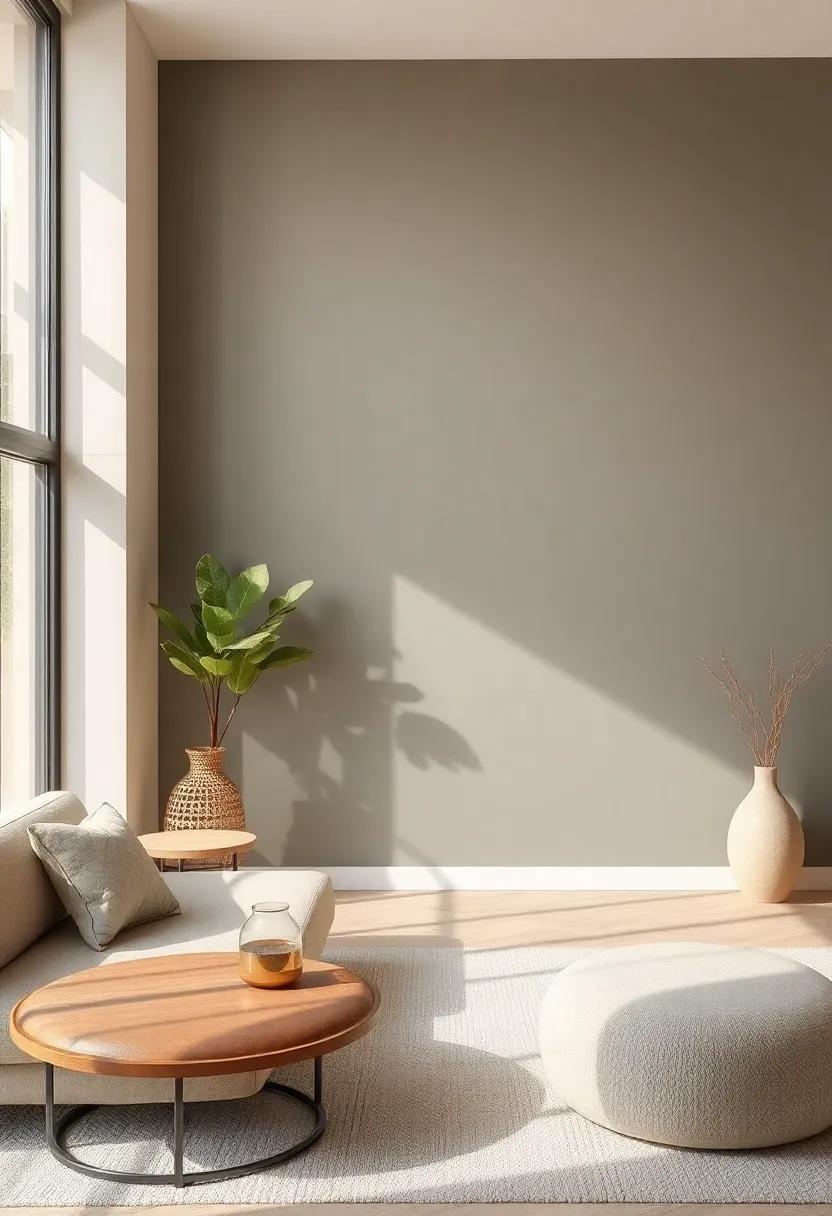
in the pursuit of a serene living environment, integrating natural sound-absorbing materials can greatly enhance acoustic comfort. These materials not only improve the auditory ambiance but also contribute to the aesthetic appeal of your living room. Popular choices include:
- Cork: Naturally rich in tones and textures, cork minimizes noise while adding warmth to your space.
- Hemp Fabric: This sustainable option provides excellent sound absorption, creating a cozy atmosphere.
- Wood panels: Combining beauty with functionality, wood can be treated to enhance its sound-absorbing properties.
- Fiberglass insulation: An effective yet frequently enough overlooked option that can be both sound absorbent and eco-friendly.
Choosing the right materials effectively can transform your living room into a tranquil retreat. Consider creating a visually appealing layout with various textures that work harmoniously together. Below is a simple comparison table highlighting the benefits of each material:
| Material | Benefits | Green Factor |
|---|---|---|
| Cork | Natural sound absorption, aesthetic warmth | 100% renewable |
| Hemp Fabric | Soft texture, excellent absorption | Highly sustainable |
| Wood Panels | Stylish, adds depth | Renewable with proper sourcing |
| Fiberglass Insulation | Remarkable sound absorption | Recyclable options available |
Incorporating Biophilic Design Principles for a Holistic feel
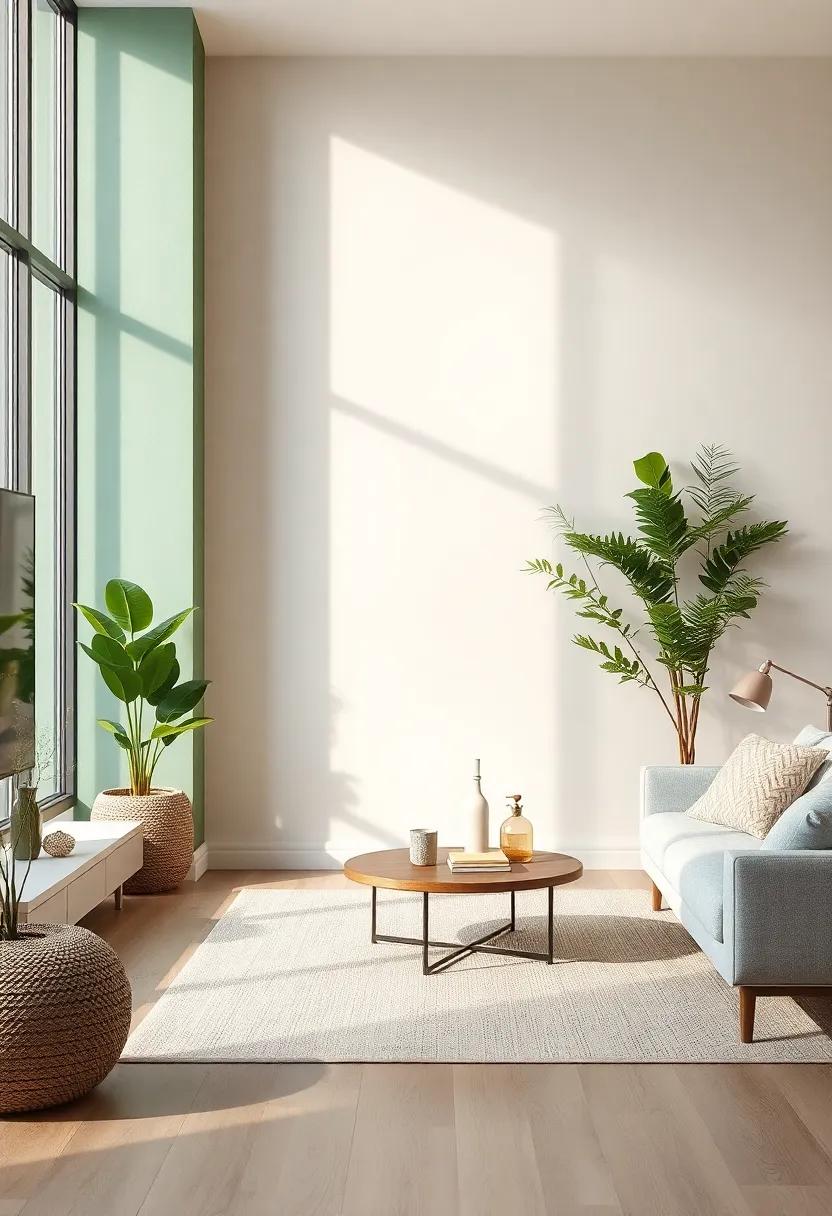
Embracing nature in interior design isn’t just about the materials you choose; it’s also about creating an atmosphere that promotes well-being and connection to the environment. By integrating natural elements and colors,the aesthetic of your living room can transform into a serene escape. Consider incorporating features such as:
- Wooden accents: Choose reclaimed or sustainably sourced timber for wall panels or shelving.
- Natural fibers: Opt for handmade rugs or cushions made from sisal, jute, or cotton.
- Earthy tones: Paint your walls in soft greens, warm browns, or muted blues to echo the outdoor palette.
To enhance the holistic feel further, incorporate living plants and textured surfaces that evoke the essence of the outdoors. Here’s a speedy overview of ways to integrate these design principles:
| Element | Purpose |
|---|---|
| Indoor Plants | Improve air quality and add a touch of vibrancy. |
| Natural Stone | Create visual interest and connect to earth’s textures. |
| glass | maximize natural light and blur indoor-outdoor boundaries. |
Showcasing Nature-Inspired Lighting to Brighten Your Living Space
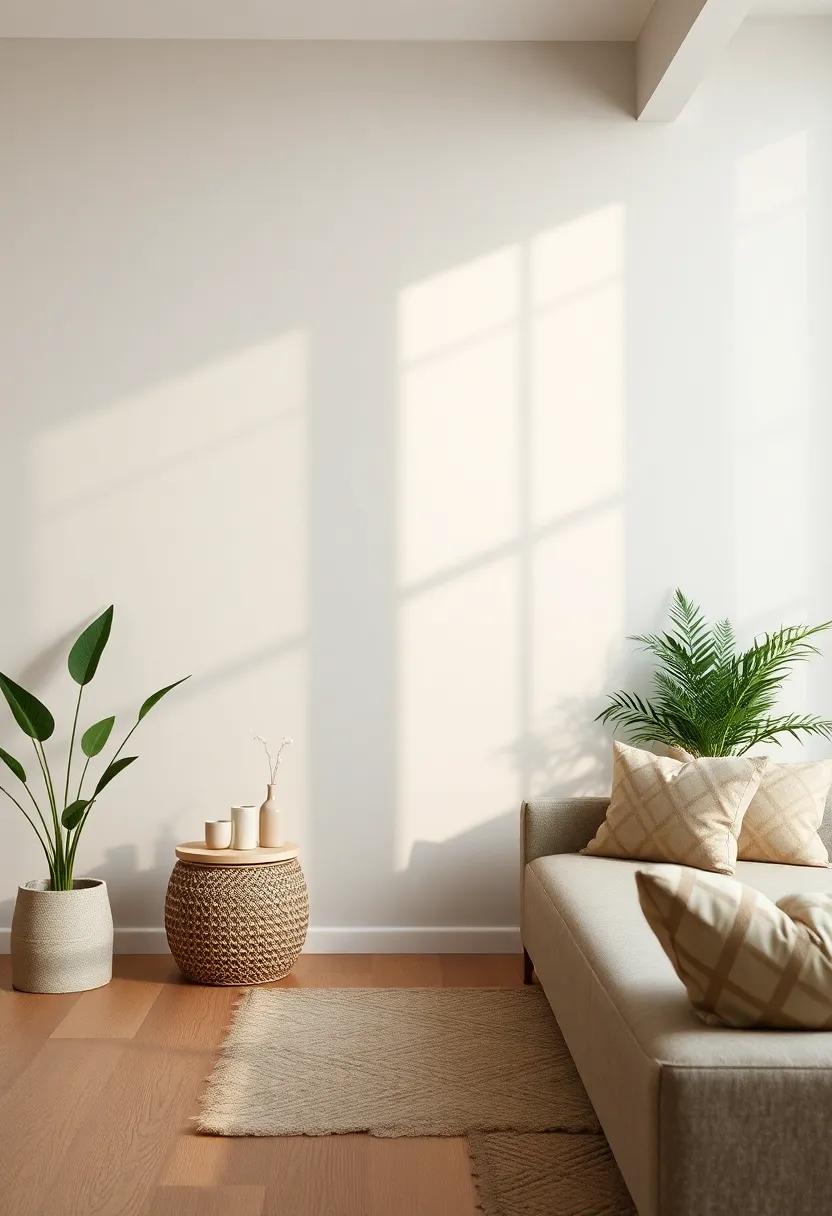
Incorporating lighting that mirrors the beauty of the natural world can transform your living space into a serene retreat. Consider fixtures that mimic organic shapes and textures, such as pendant lights crafted from woven rattan or bamboo. These designs not only provide illumination but also create a cozy atmosphere by casting soft, diffused shadows reminiscent of sunlight filtering through leaves. Choose colors found in nature—like the warm tones of wood or the cool hues of stone—to enhance the harmony of your room.
Along with aesthetics, functional lighting plays a crucial role in showcasing your nature-inspired decor. Opt for adjustable fixtures that allow you to highlight specific areas, such as plants or artwork. Accent lights with green or earthy shades can enhance the beauty of your space, while layered lighting—comprising ambient, task, and accent sources—ensures a balanced effect. Below is a simple guide to different types of nature-inspired lighting:
| Lighting Type | Description |
|---|---|
| Chandeliers | Inspired by tree branches, these fixtures add a dramatic touch. |
| Pendants | Woven materials create a natural and inviting glow. |
| Wall Sconces | Softly illuminate walls and highlight natural textures. |
| Floor Lamps | Earthy colors and organic shapes provide a grounding effect. |
The Way Forward
In a world increasingly dominated by the synthetic and the artificial, the call to harmonize our living spaces with the earthy elegance of nature has never been more pertinent. As we have explored, the incorporation of natural materials and colors into our living room design not only enhances the aesthetic appeal of our homes but also nurtures a deeper connection to the environment around us.
Whether it’s the warm embrace of wood, the calming presence of stone, or the soft palette of nature-inspired hues, these elements invite tranquility and grounding into our daily lives. By thoughtfully selecting and integrating these materials, we empower ourselves to create spaces that reflect not just our personal style, but our values and our connection to the natural world.
As you embark on your own journey to harmonize your living room with nature, remember that every choice tells a story—one that resonates with the joys and simplicity of the great outdoors. So, go ahead and embrace the beauty of nature; your walls will not only resonate with elegance but will also breathe life into the heart of your home. In every grain, shade, and texture lies an opportunity to cultivate serenity and inspire joy, inviting you to live not just within your walls, but in a space that reflects the beauty of the world outside.
 efistu.com Home Decor
efistu.com Home Decor 